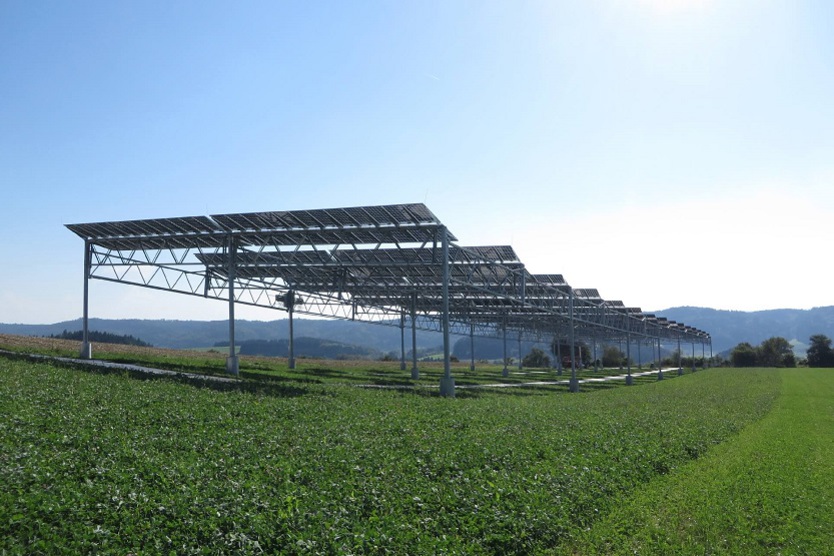
The state of Baden-Württemberg is investing in five new agri-PV plants in the sunny Lake Constance region.
© Fraunhofer ISE
The field of agri-photovoltaics (agri-PV) – where solar plants are integrated into agricultural plots – is growing in southern Germany. Not only is it an efficient use of land for generating carbon-neutral energy alongside food production, but evidence suggests that solar panels can actually provide greater protection for certain crops.
The state of Baden-Württemberg is investing in five new agri-PV plants in the sunny Lake Constance region, a fruit-growing area. The pilots will be built in Ravensburg, Weinsberg, Karlsruhe, Kressbronn as well as Nussbach and will focus on apples, pears and berry cultivation; each with a planned total output of at least 1,650 kWp. The state’s Ministry for the Environment, Climate and Energy Management is funding the project with EUR 2.5 million until 2024, together with the Ministry for Food, Rural Areas and Consumer Protection.
"Agri-PV offers a very interesting approach with a triple return," said Baden-Württemberg’s Environment Minister Thekla Walker and Agriculture Minister Peter Hauk in a joint statement announcing the project in Stuttgart last week. "Agri-PV not only saves valuable land but also harvests sun and fruit at the same time."
The ministers emphasised that the plants are for research purposes only. They acknowledged that there’s still much to learn about the potential obstacles of farming sunshine next to food before agri-PV can be rolled out across the state. Early trials of agri-PV technology have demonstrated that partially shielding orchards with solar panels can have a beneficial effect on the crop. It stabilises the temperature in the environment of the plant stand and promotes good water balance, as well as offers some protection against adverse weather events.
The project is being led by the Fraunhofer Institute for Solar Energy Systems (ISE) with input from the Kehl University of Public Administration.


